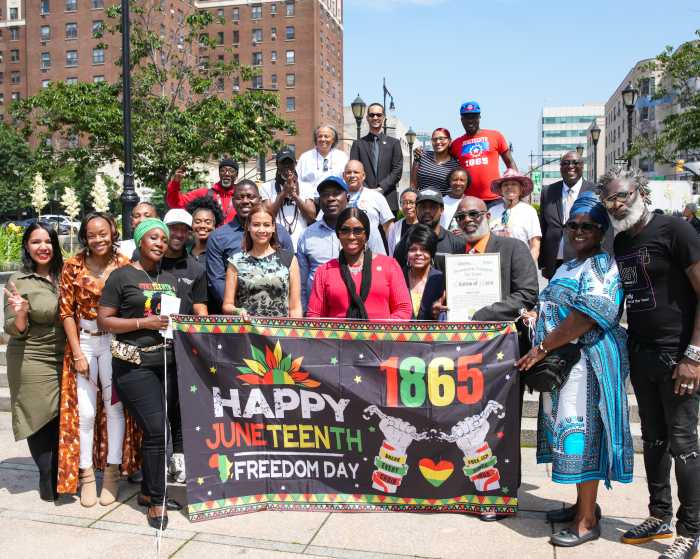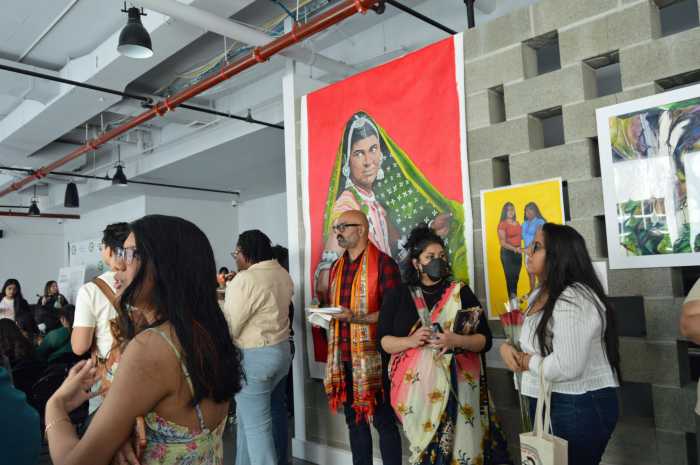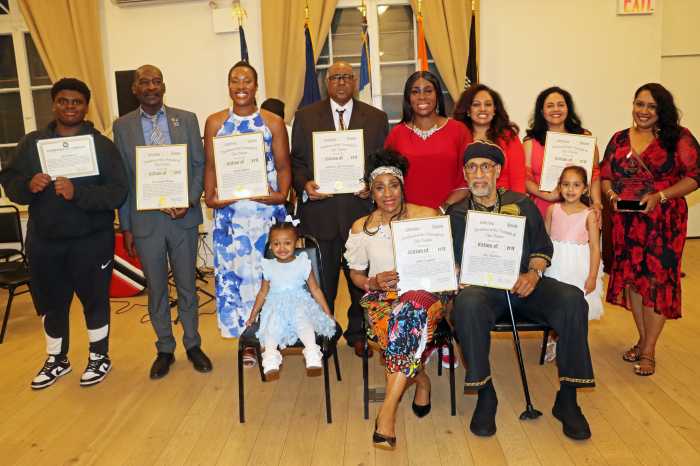Often ignored during the June celebration of Caribbean Heritage Month and also throughout the shortest month of the year when Black History Month affords platitudes to Black achievers, immigrants and their off-springs who demand change by radically forcing their politics are deprived national attention.
One such individual is Stokely Carmichael. Born in Port of Spain, Trinidad, Carmichael was born on June 29, 1941. He moved to New York when he was 11-years-old to join his parents who had settled here nine years earlier. Carmichael attended Bronx High School of Science, one of three specialized schools that enrolled some of the brightest students in the city. There he allegedly met veteran radicals, Communist and Pan-African advocates. The year he became a senior coincided with the southern movement for desegregation. Sit-in demonstrations at stores and other businesses organized by the Congress of Racial Equality (CORE) attracted his attention. And while southern students protested at segregated lunch counters at Woolworth Department stores in the south, Carmichael took notice.
‘’When I first heard about the Negroes sitting in at lunch counters down South,’’ Carmichael said, ‘’I thought they were just a bunch of publicity hounds.” In an interview with Gordon Parks in Life Magazine in 1967 Carmichael said “one night when I saw those young kids on TV, getting back up on the lunch counter stools after being knocked off them, sugar in their eyes, ketchup in their hair — well, something happened to me. Suddenly I was burning.’’
Three years prior to that interview he had graduated with a bachelor’s degree in philosophy from Howard University. He had rejected scholarships from several white universities and entered Howard University in Washington D.C. in 1960.
There he joined the Student Nonviolent Coordinating Committee (SNCC). The activist student organization mobilized ‘’Freedom Summer’’ which recruited hundreds of Black and white volunteers to teach; set up clinics and register disfranchised Black Southerners.
Carmichael was named a SNCC field organizer in Lowndes County in Alabama. Renowned as one of the most politically powerless community of Black residents, its profile changed when Carmichael organized the all-Black Lowndes County Freedom Organization. The state required that all parties have a logo. It was then that Carmichael introduced a black panther as its symbol. From that first initiative, The Black Panther became more than a symbol but a force to rival non-violence in the south. With his determination and charismatic personality, he helped raise the number of registered Black voters from 70 to 2,600. The figure allegedly exceeded by 300 the numbers of registered whites.
Barely a month after his selection, Carmichael at age 25, in a speech coined the phrase “Black power.” The term ignited opposition from conservative Civil Rights activists and prompted white backlash. Among the most prominent dissenters of the phrase was Dr. Martin Luther King Jr.
An article in the New York Times claimed that Carmichael’s stance was in opposition to the convictions of older Civil Rights activists.
“Increasingly uncomfortable with Dr. King’s resolute nonviolence, he sensed a shift among some younger Blacks in the direction of Black separatism. Many were listening sympathetically to the urgings of Malcolm X, who had been assassinated a year and a half earlier, that the struggle should be carried out by any means necessary. Carmichael was arrested so often as a nonviolent volunteer that he lost count after 32. His growing impatience with the tactics of passive resistance was gaining support, and in 1966 he was chosen as chairman of SNCC, replacing John Lewis, a hardworking integrationist who is now a Congressman from Georgia.”
Carmichael later accepted an invitation to take the position of prime minister of the Oakland, California-based Black Panther Party. In 1969 he left the Black Panthers after disagreeing with the party’s willingness to work with radical whites.
Along with like-minded activists he helped form the All-African People’s Revolutionary Party in 1972.
Together they urged African American radicals to work for African liberation and Pan-Africanism. Carmichael described himself as a revolutionary. He moved to Guinea, Africa with his exiled South African wife Miriam Makeba. Together they travelled to many socialist nations including Cuba. While living on the continent he changed his name to Kwame Ture.
The name-change in 1978 paid tribute and honor to Ghana’s Kwame Nkrumah and Guinea’s Ahmed Sekou Toure. The two were African socialist leaders who admired his tenacity and bold anti-imperialist stance.
The revolutionary and political prodigy died of cancer in Conakry, Guinea, Nov. 15, 1998. He was 57.
At his funeral, Rev. Jesse Jackson eulogized him saying: “He was one of our generation who was determined to give his life to transforming America and Africa.”
“He rang the freedom bell in this century.”


























